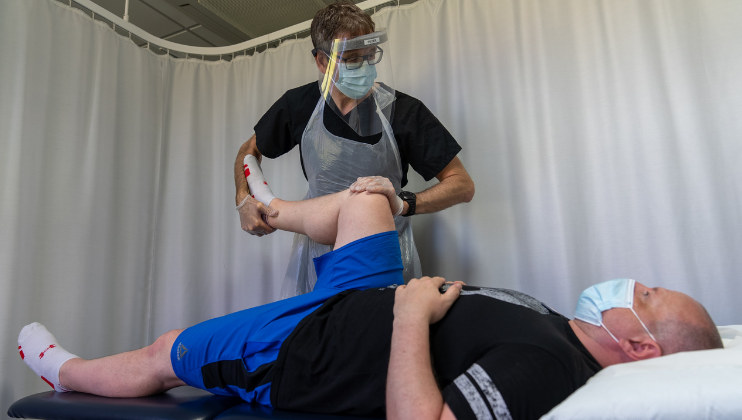While a residential stay at one of our three centres can be transformational for many of our beneficiaries, taking a week out may be difficult for some people in the fire and rescue service – and not everyone may need one.
That’s why we also run an Outpatients Programme, specifically designed for beneficiaries in the local area to access support through a series of short, two-hour sessions which can fit in around their work and family commitments.
Our assessment practitioner team take the time to chat with our beneficiaries to understand their needs and what support we can offer. For some this may be remote support through our digital programme, for others a stay at the centre may be appropriate. For those who we feel we can support through our outpatients service then beneficiaries are welcomed into a centre close to them for a series of around four to six sessions.
Our Physiotherapist, Peter Raistrick, who has been working on the programme at Marine Court, explains: “Obviously during Covid we weren’t able to offer our usual residential programmes, so we were looking at opportunities to meet the needs of our beneficiaries in the interim.
“The two options that were considered were online consultations and outpatient consultations. In terms of the outpatients, we’re looking at people that are within the relatively close proximity of our rehabilitation centre – around an hour’s travel distance.
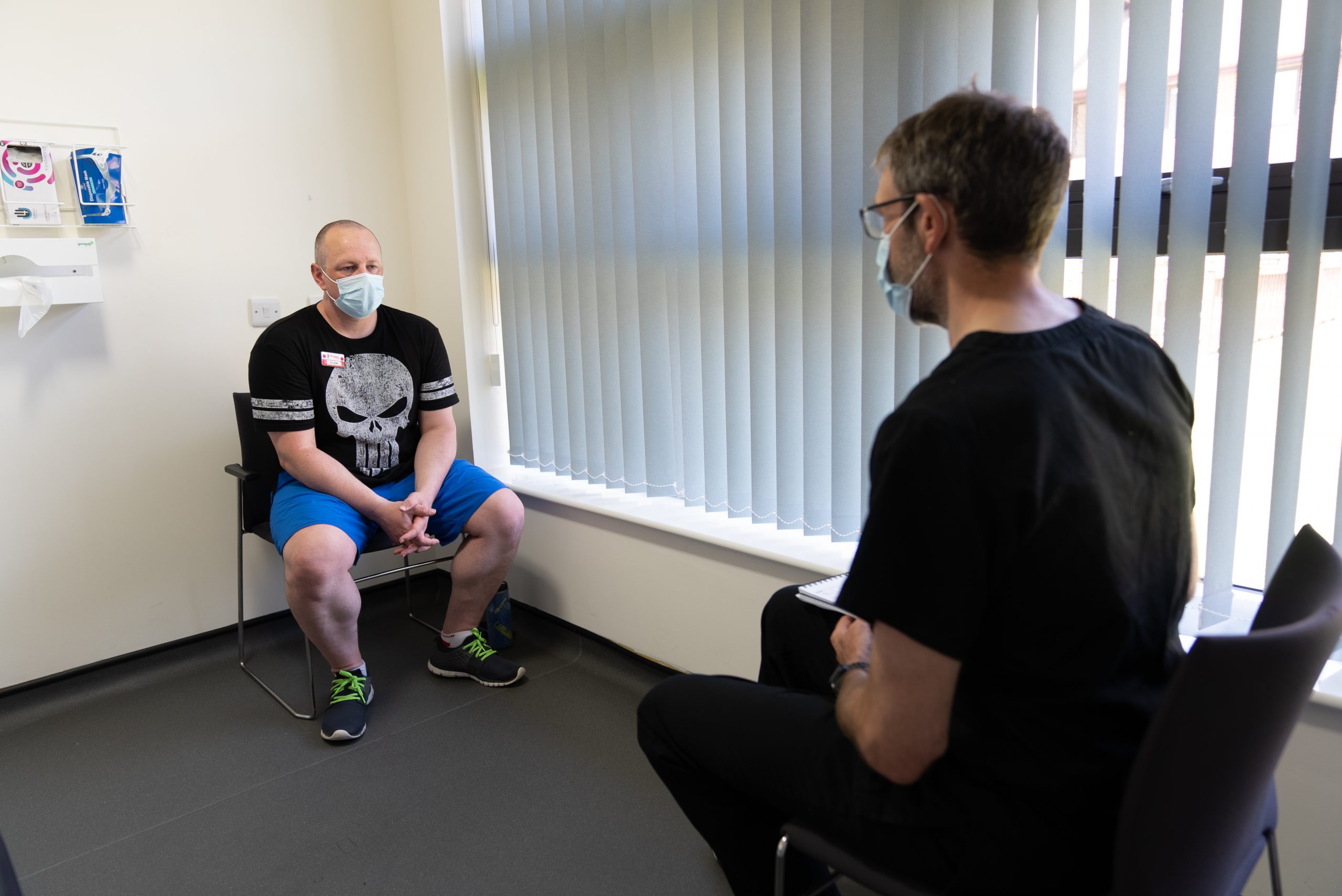
“Although the residential programmes are fantastic, and they meet the needs of some beneficiaries better, there’s a lot of people that can’t commit to having that full five days away from their families and work.”
Once it’s determined a beneficiary will benefit from the programme, they are welcomed at reception and shown through to meet the physiotherapist and exercise therapists, before a thorough physical examination takes place. Our experts take the time to learn more about each person’s medical history and circumstances, ensuring they can tailor the support to best suit individual need.
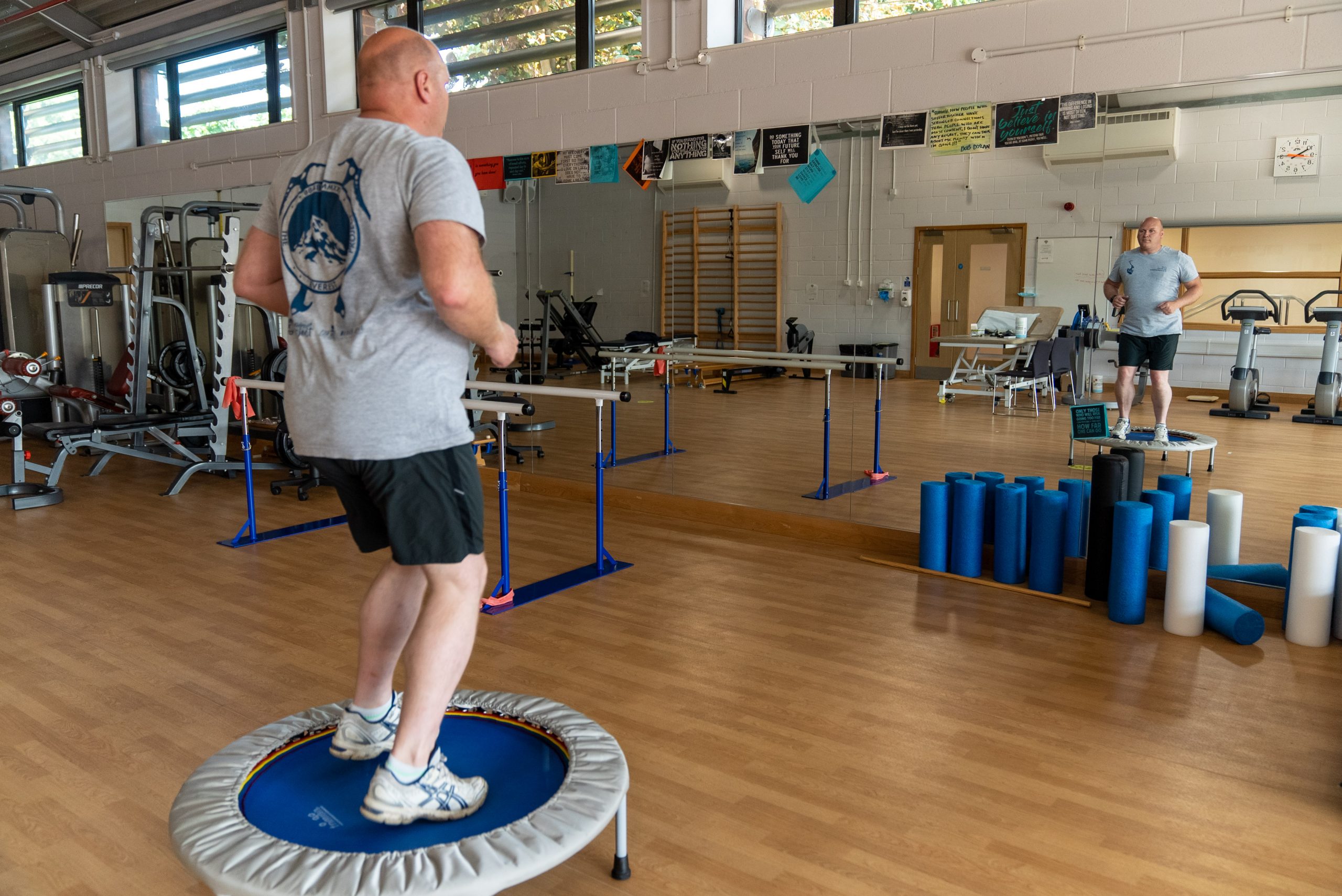
“With the outpatients, we book them a two-hour slot,” adds Peter. “We do a very thorough assessment so we get a good picture of what the problem is and we get to formulate a really good treatment plan that they can go away with.
“We’ve got a well-equipped gym on site, we can look at the exercises we’re thinking of giving them and work through them, make adjustments, change them, just to make sure that what they go away with are the best exercises for the problem and, more importantly, they’re doing them right. These exercises are provided through an app called Salaso, our online exercise library, and can be accessed through a phone or tablet.
“We can also often get them into our hydrotherapy pool, for example, if someone’s got a really acute case of back pain. It’s great to be able to initiate that movement through the body again, in a comfortable way.
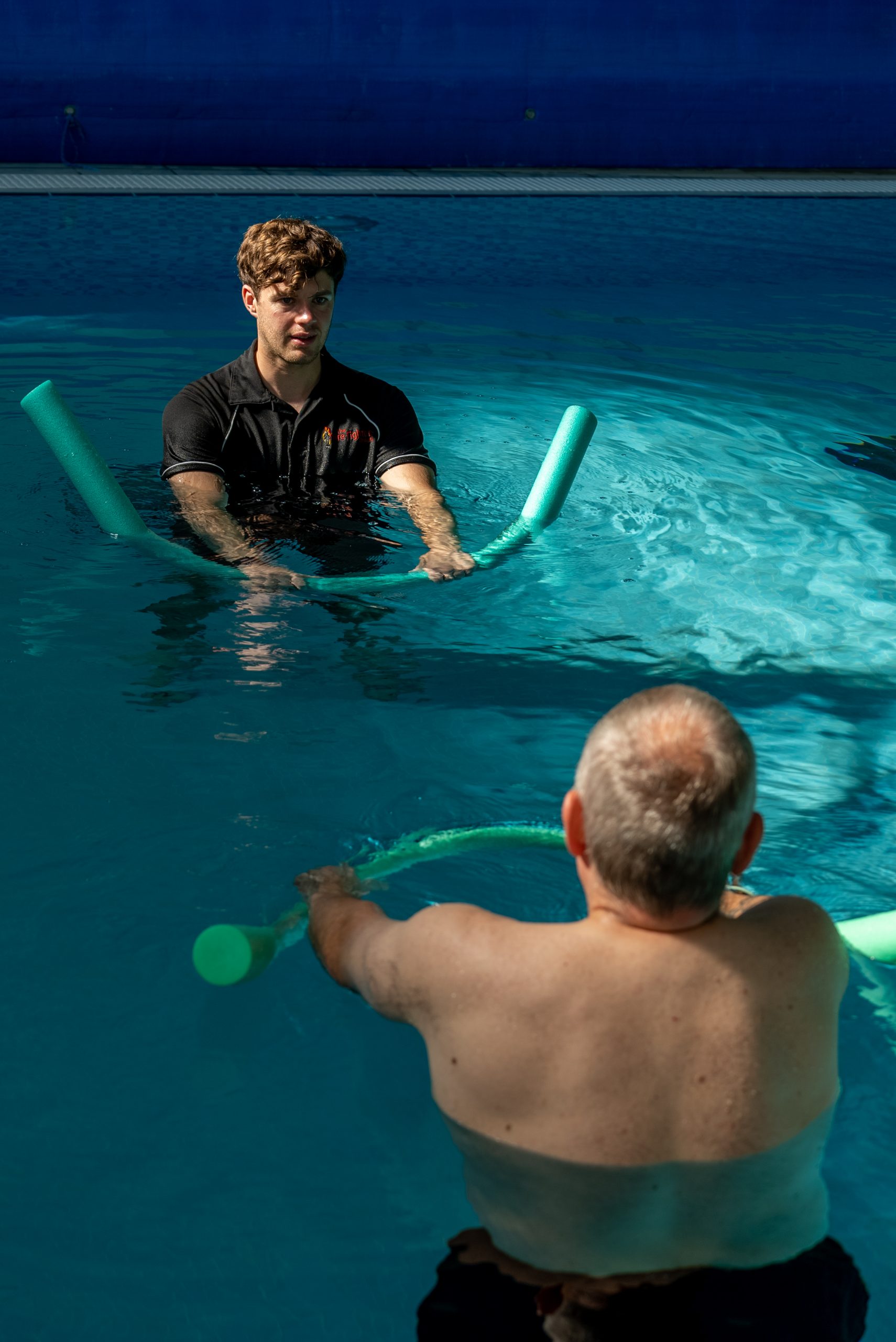
“We’re very, very fortunate in terms of the facilities we’ve got and the service we can provide. As a physiotherapist, the majority of the beneficiaries I see have had musculoskeletal injuries – things like hip pain, low back pain, shoulder problems. It can be very varied.”
And Peter has already seen the positive impact the programme is having.
He adds: “I’ve got a firefighter I’ve seen who’s got a persistent shoulder problem. He came in recently for his initial assessment and we established that he’s got a problem with his rotator cuff.
“He’s developed a sort of compensation in the way he’s doing things, which has resulted in a weakness in certain areas. He was given an exercise programme that worked primarily on getting the right muscles to activate when he was doing tasks with his arm or shoulder.
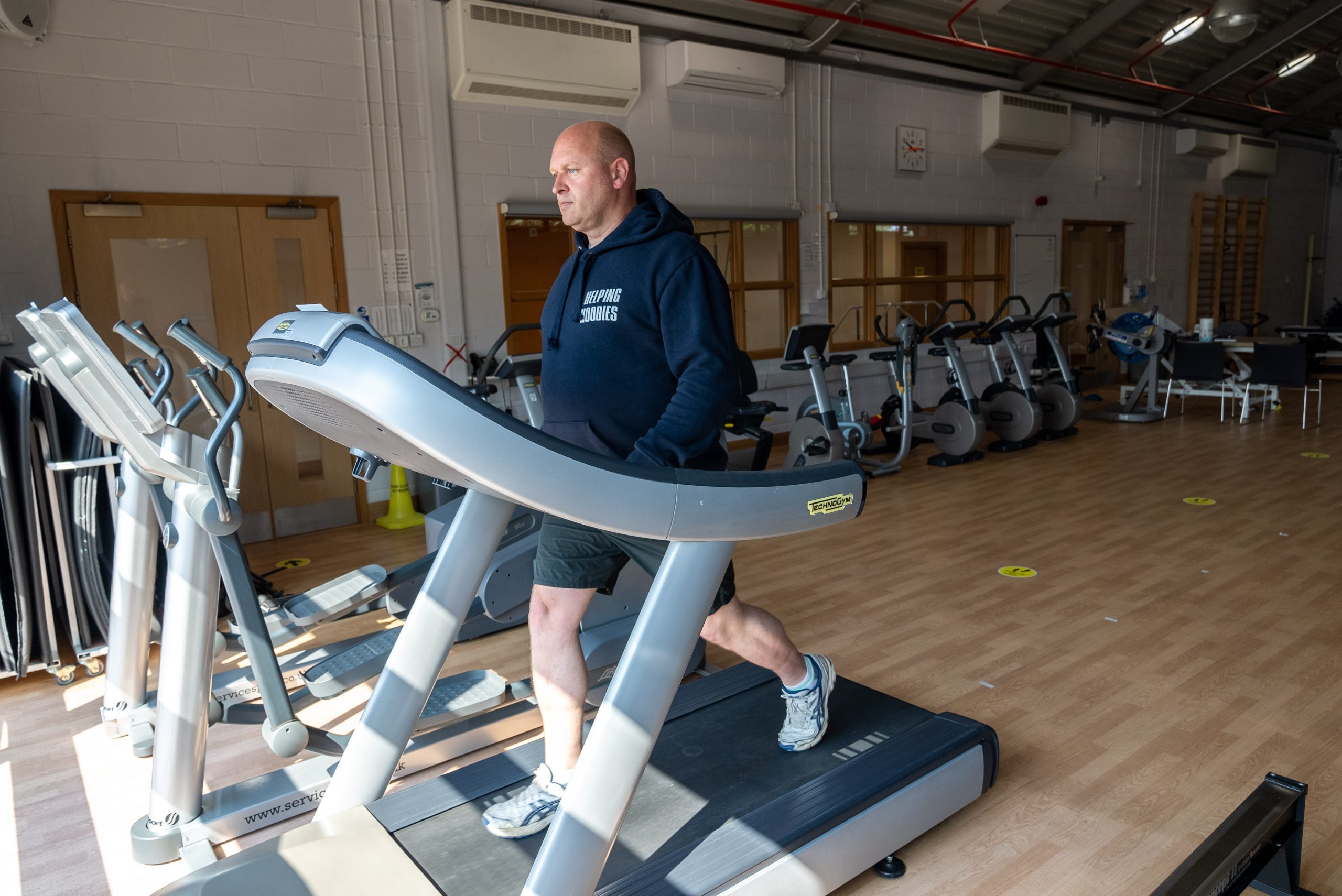
“I saw him again two weeks after his first appointment, and the difference in terms of his awareness of what’s happening in his shoulder and being able to correct his own movements to not cause his symptoms was really good. It was really pleasing to see how much he’d learnt in a short space of time.”
While the programme itself is aimed at supporting beneficiaries with physical injuries or concerns, the team are also available to chat to about anything else that may be concerning you.
Peter explains: “During the course of our assessment, if we feel there’s a need for support in an area we’re not qualified to deal with, we can signpost beneficiaries to other areas – for example, our welfare services or psychological services team. We do get a lot of people that we either refer on or encourage them to self-refer.
“We’ll offer them a follow-up normally, either in-person or digitally, and then also welcome them to contact us if they have any issues. They can email or ring us, we’re always there if people need to talk to us.”

